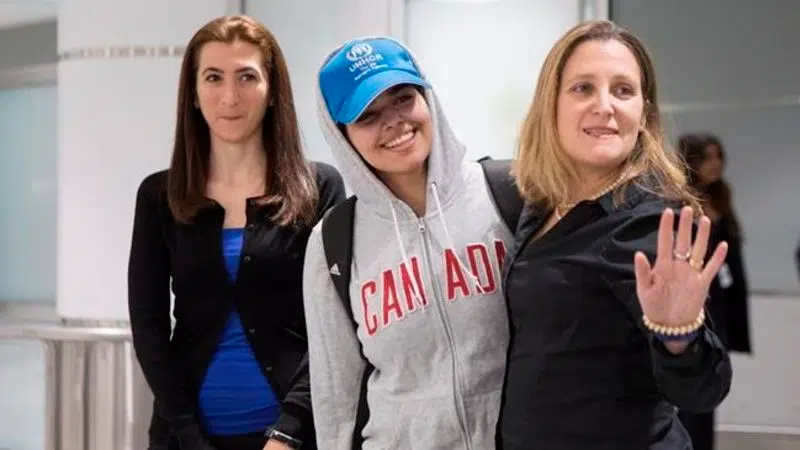
Foreign affairs minister welcomes “brave new Canadian” as Saudi teen lands in Toronto
TORONTO — A Saudi teen described as a “brave new Canadian” by an official from the government that granted her refugee status as she fled her allegedly abusive family is en route to her new home, Canada’s Foreign Affairs Minister said Saturday.
Chrystia Freeland appeared alongside 18-year-old Rahaf Mohammed Alqunun with her arm around the teen as she appeared briefly at Toronto’s Pearson International Airport.
Alqunun, fresh off a flight from Seoul, South Korea, and sporting a grey “Canada” hoodie and a blue hat emblazoned with the logo of the organization that arranged her resettlement, smiled and waved at a group of reporters, but offered no comment on her arrival.


